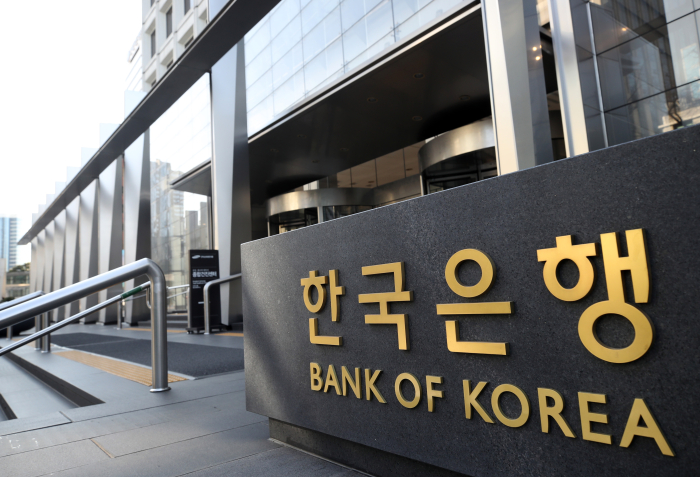BOK to exclude high emitters from FX reserves portfolio
The central bank plans to exclude high emitters from all outsourced FX assets, then all its FX reserves later on
By Sep 28, 2021 (Gmt+09:00)
LG Chem to sell water filter business to Glenwood PE for $692 million


Kyobo Life poised to buy Japan’s SBI Group-owned savings bank


KT&G eyes overseas M&A after rejecting activist fund's offer


StockX in merger talks with Naver’s online reseller Kream


Mirae Asset to be named Korea Post’s core real estate fund operator



As the first step, it will outsource part of its forex reserves management to funds tracking ESG indices in a pilot program and then adopt the negative screening system for all its outsourced forex reserves.
Within the next two to three years, all high emitters, or those with poor scores based on independent ESG indices will be excluded from all its forex reserves, according to the BOK.
Over the longer term, the central bank will incorporate ESG themes into investment decisions for its forex reserves. South Korea ranks eighth in terms of foreign currency reserves, which amounted to $464 billion as of the end of August. It is not allowed to invest forex reserves in domestic assets.
“The Bank of Korea will gradually step up ESG investing by integrating ESG factors into all its foreign exchange reserves, beyond investing in ESG-themed products as part of a forex reserves diversification,” it said in a statement.
It noted that its adoption of ESG investing reflects the growing demand for responsible investing by public institutions to tackle climate change and to take into consideration the consequences of their management and investment.
In 2019, the Riksbank, Sweden’s central bank, became the first central bank in the world to exit public debt because of climate exposure, offloading bonds issued by Australian and Canadian regions.

Since December 2019, the BOK has made ESG-themed equities investments through external managers. For the fixed-income portfolio, it has made both direct and indirect investments in ESG bonds, which are also referred to as green, social and sustainability bonds.
ESG-themed stocks and bonds amounted to $1.22 billion and $5.9 billion at the Bank of Korea, respectively, as of the end of June.
Korea Investment Corporation, South Korea's sovereign wealth fund, is among the external managers of the BOK's foreign currency assets.
Alongside negative screening, the BOK will implement positive screening to boost investment in companies with high ESG scores, as well as in green bonds which are used for eco-friendly investments.
The Korea Economic Daily first reported in April this year that the BOK was working on the introduction of negative screening on companies with a large carbon footprint.
The MSCI ESG rating identifies industry leaders and laggards according to their exposure to ESG risks and their risk management relative to peers. It also rates equity and fixed income securities, loans, mutual funds, equity traded funds and countries.
Write to Ik-hwan Kim at lovepen@hankyung.com
Yeonhee Kim edited this article.
-
 ESG investingNPS adopts limited negative screening on high emitters
ESG investingNPS adopts limited negative screening on high emittersMay 28, 2021 (Gmt+09:00)
2 Min read -
 Pension fundsCPPIB says no negative screening for ESG investing
Pension fundsCPPIB says no negative screening for ESG investingMay 27, 2021 (Gmt+09:00)
3 Min read -
 KIC CEO to step up startup, ESG investments
KIC CEO to step up startup, ESG investmentsOct 16, 2020 (Gmt+09:00)
3 Min read


